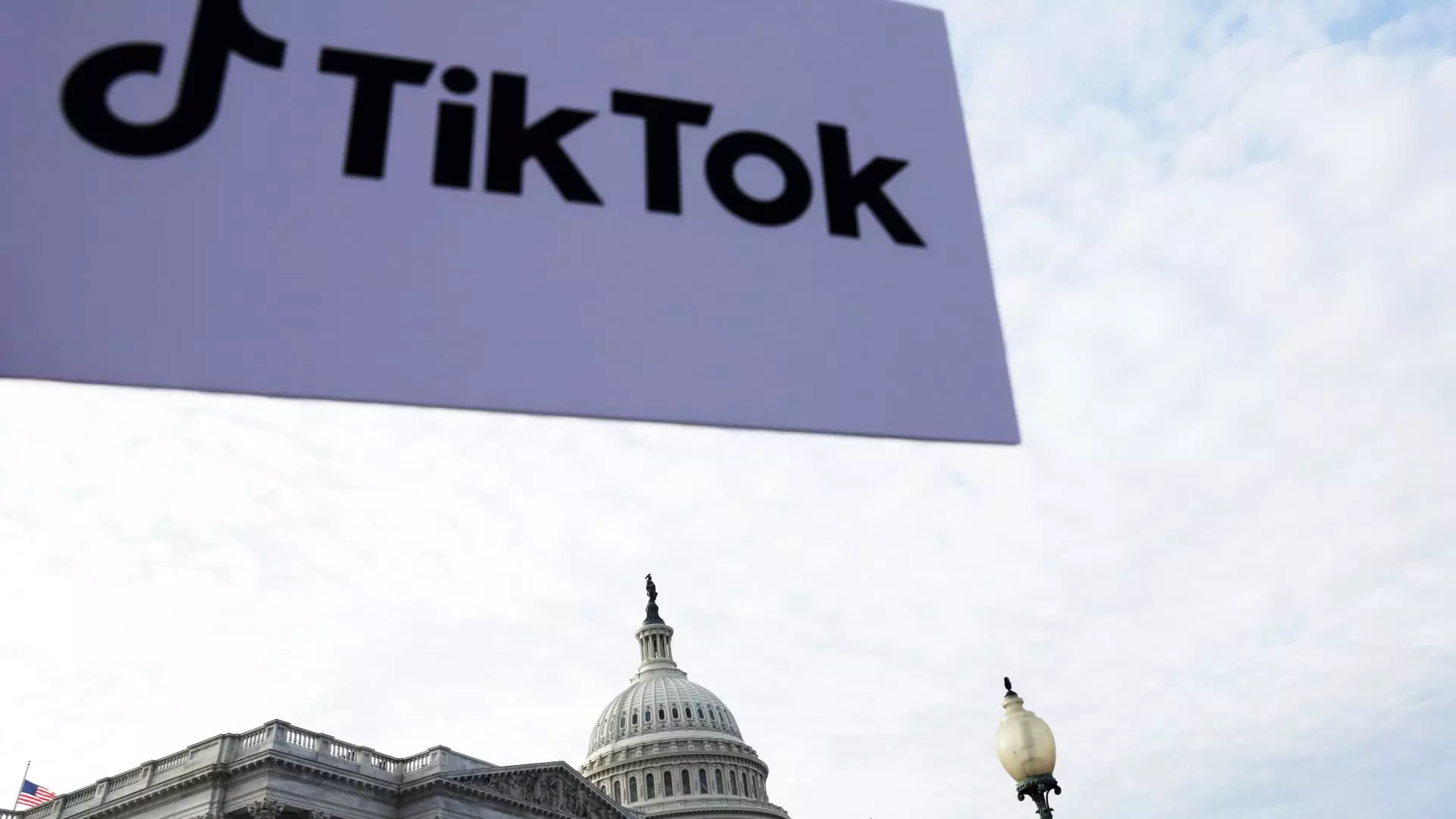The ongoing saga of TikTok in the United States has reached a crucial juncture, with reminders from lawmakers to tech giants Apple and Google about their roles in the potential ban of the app. With the deadline set for January 19—by which China’s ByteDance must divest from TikTok—regulatory pressures are mounting. This situation represents more than just a struggle over an app; it encapsulates broader themes of national security, corporate responsibility, and the intersection of technology and politics.
This past Friday, two members of the U.S. House of Representatives, John Moolenaar and Raja Krishnamoorthi, reached out to Tim Cook and Sundar Pichai, the CEOs of Apple and Google, respectively. Their letters emphasized the impending legal requirements placed upon these corporations as app store operators in the event TikTok remains under ByteDance’s ownership past the stipulated deadline. The U.S. Court of Appeals in Washington, D.C. bolstered these lawmakers’ sentiments by upholding legislation aimed at addressing national security concerns related to the app. Such developments signal a significant shift in how regulatory bodies view app ownership in relation to foreign influence and data security.
Central to the lawmakers’ correspondence was the codified mandate stipulating that companies such as Apple and Google could face legal repercussions should they allow TikTok continued access to their platforms post-divestiture deadline. The alarming implications of non-compliance extend beyond the companies themselves, raising questions about their liability as gatekeepers of digital content. The legal text referenced calls for a stringent approach to applications controlled by foreign adversaries, indicating a more aggressive posture from the U.S. Government.
As TikTok gears up to fight the potential ban, the company has raised urgent concerns about the ramifications such a move could have on small businesses and social media creators who rely heavily on the platform. With projected losses nearing $1.3 billion, the economic fallout could be immense, particularly in a landscape where social media has become an essential avenue for employment and marketing. This data underscores a significant tension: while lawmakers prioritize national security, the lives of countless creators hang in the balance, illustrating the economic stakes of this political tug-of-war.
The narrative becomes even more complex when considering the political landscape. Former President Donald Trump’s initial efforts to ban TikTok during his administration were filled with uncertainty and mixed messaging. His changing stance, particularly after meeting with influential investors linked to ByteDance, reveals how personal ties and financial interests can cloud governmental decisions. Such dilemmas make it challenging to ascertain what direction the Biden administration—and whoever follows—might take concerning TikTok, particularly as they weigh conflicting priorities of security and economic wellbeing.
TikTok has vocally critiqued the legal action against it, asserting that the measures infringe upon the First Amendment rights of around 170 million U.S. users. The rejection of this argument by the appeals court adds another layer to the debate, raising vital questions about the freedoms afforded to citizens versus the state’s duty to protect its national interests. There is a fine line between safeguarding data and encroaching on personal liberties, and the implications of this case could set critical precedents in both areas.
As the January deadline approaches, it is clear that the battle surrounding TikTok is about more than just a popular app. It encapsulates serious concerns around national security, economic stability for content creators, and personal freedoms, culminating in a highly charged political atmosphere. The outcomes of these ongoing legal and legislative actions will shape the future of digital platforms and U.S.-China relations. Only time will tell how this saga will unfold, but one thing is certain: the stakes are high for all parties involved.


Leave a Reply